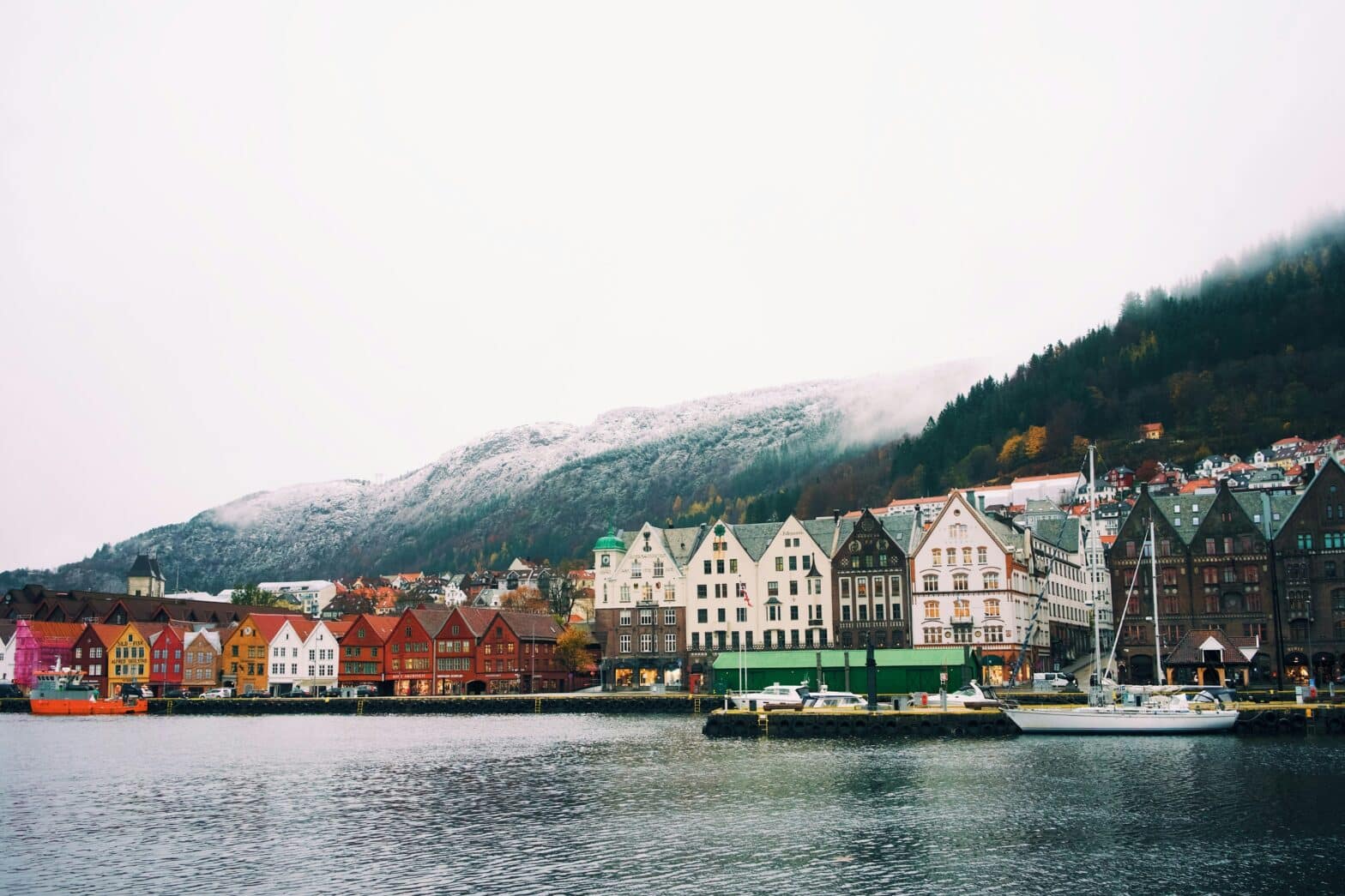Norway, renowned for its breathtaking landscapes, high standard of living, and prosperous economy, is an appealing destination for expatriates seeking a new chapter in the North of Europe. This guide explores the cost of living in Norway, providing detailed insights to help prospective movers plan their relocation.
Understanding the Costs in Norway
Norway’s Currency and Exchange Rate
Norway uses the Norwegian Krone (NOK) as its official currency. The Krone’s stability offers a predictable financial environment for managing expenses and a budget. As of August 2024, the exchange rate is approximately 1 NOK = 0.10 USD, or 1 NOK = 0.09 EUR. This conversion rate is crucial for budgeting and understanding the financial implications of living in Norway.
Cost of Living in Norway VS Europe
Compared to other Western European countries like Switzerland, Germany, and the UK, Norway is known for its high cost of living. Major cities such as Oslo, Bergen, and Stavanger are particularly expensive, with living costs substantially higher than many other European cities. For instance, the cost of living in Oslo is notably steep, reflecting the city’s high prices for housing, food, and services. On average, living expenses in Norway are about 20% to 30% higher than those in major European capitals like London.
Norway and United States Comparison
When comparing the cost of living in Norway to that of the United States, Norway remains more expensive. The average cost of living in Norway is approximately 30% higher than in the United States. This difference is particularly evident in housing and everyday expenses. For example, rent for a comparable apartment in Oslo can be about double the cost of a similar apartment in major U.S. cities. The high cost of living in Norway is partly due to the country’s strong currency and high standard of services.
Estimated Living Costs in Norway
For a family of four, the average monthly budget to live comfortably ranges from approximately 30,000 to 40,000 NOK (about 2,700 to 3,600 EUR), excluding housing expenses. For a single person or a couple, monthly rent and expenses typically fall between 15,000 to 20,000 NOK (about 1,350 to 1,800 EUR), depending on lifestyle and location.
Housing Prices in Norway
Finding suitable accommodation is a major consideration for expatriates moving to Norway. Housing costs vary significantly depending on location and amenities. In major cities like Oslo and Bergen, rent for a furnished bedroom apartment in the city center can be as high as 15,000 NOK (about 1,350 EUR) per month. In contrast, prices may be more affordable in suburban or rural areas. Here’s a breakdown of average rent for bedroom apartments in different Norwegian cities:
- Oslo: 12,000 to 18,000 NOK per month (about 1,080 to 1,620 EUR) for a 60-80 sqm furnished apartment.
- Bergen: 10,000 to 15,000 NOK per month (about 900 to 1,350 EUR) for a similar apartment.
- Stavanger: 9,000 to 14,000 NOK per month (about 810 to 1,260 EUR).
- Trondheim: 8,000 to 12,000 NOK per month (about 720 to 1,080 EUR).
Norway Housing Costs in Europe
In comparison to other European countries, Norway’s housing market is on the expensive side. While some countries in Eastern Europe or even neighboring Sweden might offer more affordable housing options, Norway’s high prices reflect its overall high cost of living.
Utilities and Transportation Costs in Norway
Basic utilities for an 85 sqm apartment in Norway, including electricity, heating, cooling, water, and garbage, average around 1,200 to 1,500 NOK per month (about 108 to 135 EUR). Mobile phone plans and internet services are also costly, with a monthly mobile plan costing around 400 NOK (about 36 EUR) and internet services averaging 600 NOK (about 54 EUR) per month.
Public Transport Costs
Public transport in Norwegian cities is efficient but can be expensive. As of 2024, typical fares are:
- Single Ticket: 50-70 NOK (about 4.50 to 6.30 EUR).
- Day Pass: 150-200 NOK (about 13.50 to 18 EUR).
- Monthly Pass: 800-1,200 NOK (about 72 to 108 EUR).
For international students and expatriates, public transport is a vital expense, and discounts may be available for students and seniors.
Food Prices in Norway
Grocery prices in Norway are relatively high compared to many other countries. Here’s a snapshot of typical grocery costs:
- Water (1.5-liter bottle): 20-30 NOK (about 1.80 to 2.70 EUR).
- Milk (1 liter): 20-25 NOK (about 1.80 to 2.25 EUR).
- Chicken fillets (1 kg): 150-200 NOK (about 13.50 to 18 EUR).
- Beef (1 kg): 250-300 NOK (about 22.50 to 27 EUR).
A single person might spend around 3,000 to 4,000 NOK per month (about 270 to 360 EUR) on groceries, while a family of four could expect to spend approximately 8,000 to 10,000 NOK (about 720 to 900 EUR).
Dining Out Costs in Norway
Eating out in Norway is also not cheap:
- Inexpensive Meal: 150-200 NOK per person (about 13.50 to 18 EUR).
- Mid-Range Restaurant: 300-500 NOK per person (about 27 to 45 EUR).
- Fine Dining: 700 NOK and up per person (about 63 EUR and up).
Healthcare and Insurance in Norway
Norway’s public healthcare system is well-regarded for its high quality and is primarily funded through taxation. This system ensures that residents receive comprehensive medical services, including hospital care, general practitioner visits, and emergency treatments, often at low or no direct cost at the point of service. The Norwegian Health System offers a robust network of medical facilities and healthcare professionals dedicated to maintaining public health and well-being.
For those with a residency or patient card, the cost of a typical visit to a general practitioner under the public system is approximately 200 to 300 NOK (about 18 to 27 EUR).
Specialist consultations can range from 400 to 600 NOK (about 36 to 54 EUR), depending on the type of specialist and the complexity of the consultation.
These costs reflect the standard co-payments that residents might encounter, with additional costs potentially covered by private health insurance or through out-of-pocket payments if not fully subsidized.
However, expatriates might find it advantageous to obtain private health insurance in addition to what the public system provides. While the Norwegian Health System covers a wide range of services, private insurance can offer several benefits. It often provides quicker access to specialists and elective procedures, covers treatments and services not included under the public scheme, and offers more flexibility in choosing healthcare providers. This can be particularly useful for those who may prefer or need additional coverage for specific health needs or for those who might require frequent visits to private practitioners.
Furthermore, expatriates coming from countries with different healthcare systems might encounter gaps or differences in coverage that could be addressed with private insurance. Ensuring adequate health coverage is crucial for navigating Norway’s healthcare landscape smoothly and avoiding unexpected medical expenses.

Education Costs
For international students, tuition fees at Norwegian universities such as the University of Bergen and the University of Oslo are relatively low compared to other Western countries, typically ranging from 5,000 to 10,000 NOK per year (about 450 to 900 EUR). However, living expenses can be high, so budgeting for accommodation, food, and transport is crucial.
Visa and Immigration
Expatriates moving to Norway will need to navigate visa and immigration requirements. Norway offers various residence permits for skilled workers, students, and family reunification. The process involves proving financial means, obtaining health insurance, and possibly securing a job offer or enrollment in an educational institution.
Living in Norway offers a high standard of living, stunning natural beauty, and a strong social safety net. However, it comes with a significant price tag. Understanding the cost of living in Norway, from housing and utilities to food and transportation, is essential for effective budgeting and planning. By thoroughly researching these aspects, expatriates can make informed decisions and enjoy a successful transition to life in this beautiful Nordic country.
